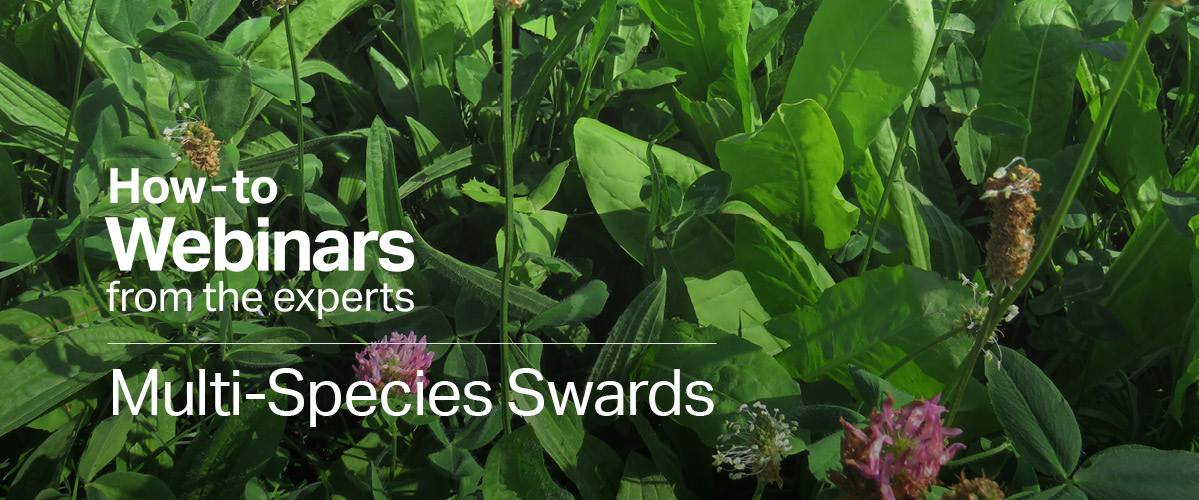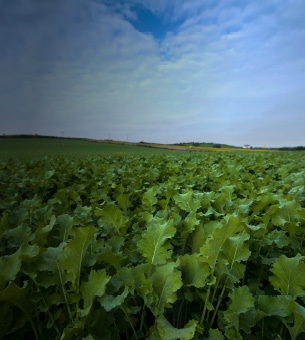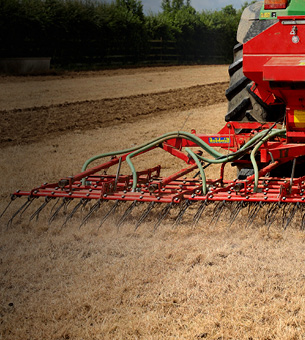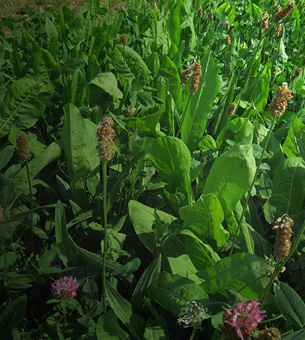There has been a growing interest in some early findings on multi-species pasture driven by positive results in terms of the advantages they can offer as different species bring different benefits to the sward.
Some species will be nitrogen-fixing while others will be deep rooting, and so, bring more minerals up from lower down in the soil. Deeper rooting species have the potential to be more resilient in drought conditions. Some species such as chicory have anecdotal evidence of anthelmintic benefits and reduce worm counts in lambs. From a biodiversity perspective, the more species present in a sward, the greater potential benefit to insect populations.
There are a lot of unknowns when it comes to incorporating multi-species into ‘conventional’ farming systems in Ireland. Germinal Ireland, alongside Andre Van Barneveld from Graise Consultancy, a pasture-based dairy farm consultancy, is supporting Martin Ryan, Cashel, Co Tipperary with his incorporation of multi-species swards into his dairy farm.
The objective for Germinal is to observe how certain species perform on a typical Irish dairy farm. Another such farmer that Germinal Ireland is working alongside is William Hutchinson, Chapelizod, Kells, Co Kilkenny, who operates a substantial herd of commercial sheep and pedigree ewes. These initiatives allow Germinal to ascertain the opportunities for Irish farmers in incorporating multi-species swards into their otherwise traditional grazing platforms.
Early days for multi-species pasture
It is still early days for multi-species pasture and reports show there are some distinct challenges. One of the main reasons we do not have greater uptake of multi-species grazing at farm level is the limitation of weed control options.
If herbs such as plantain, chicory or others are being incorporated, then they cannot be sprayed for weeds or they will also be killed. Herbs tend to be less persistent than perennial ryegrass or white clover in a mixture; generally with a lifespan of 3-5 years.
In some cases in Ireland, farmers have reported multi-species pasture quickly disappearing (within 2 years). The objective for Germinal is to find alternative species that provide enough benefit that will also persist long enough to justify their use.
In terms of incorporating multi-species swards into dairy herds, varieties must be willingly grazed by dairy cows as well as young stock. Additionally, the multi-species swards need to be able to be managed within the normal rotation length and within residual level targets used in these systems.
Tipperary farm data
In the case of Martin Ryan’s farm in Cashel, we investigate the options for introducing herbal species at a later stage following the initial establishment of a mono-culture tetraploid PRG followed by post-emergence weed control.
The method and findings from 2019 have been reported as follows:
- Existing sward was sprayed off using Roundup at recommended rate on 10 March 2019. This was then left for 20 days before soil was tilled using discs, power harrow and roller
- 15 kg AberClyde per acre was sown on 3 April
- Postemergence spray using Legumix was applied at the recommended rate on 21 May
- Grazed on 25 May
- 5 kg white clover, 1 kg Tonic plantain/Puna chicory mix, 0.75 kg Sainfoin/Birdsfoot Trefoil broadcast on 27 May followed by grazing with the milking herd
- Fertiliser used was 3,000 g/acre slurry pre power harrow, three bags/acre 10-10-20 7 days post sowing PRG, 1 bag/acre of 18-6-12 post-emergence, 1 bag/acre 0-10-20 at time of post-emergence spray
The sward was assessed on 20 July and showed a strike success of herbal varieties as <1%. It was only present where the post-emergence spray had missed. A second attempt was made on 9 August when a mix of white clover, Puna chicory and Tonic plantain was stitched in using a seed drill. The two weeks that followed were very dry but good emergence was achieved once moisture came in late August.
Our webinar on multi-species grass seed hosted by Germinal's Dermot Campion and Teagasc Advisor Sandra Hayes can be viewed using the link below.




